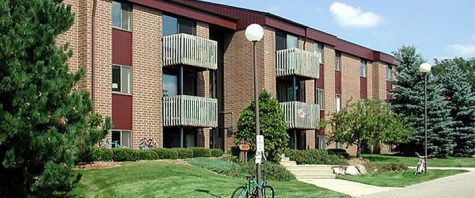For commuter students, getting involved on campus takes some work. They say it’s worth it
Commuting is an economical, and often practical, decision for local underclassmen, but it comes with social challenges.
Commuter students make up roughly 6% of Calvin’s first-year class this year, according to Dean of Students John Witte. As a relatively small portion of the underclassmen student body, and a portion that tends to lack access to social opportunities like dining halls and dorm events, new commuter students sometimes find it difficult to feel a part of campus life. “On-campus living tends to increase opportunities for social involvement, deeper friendships, a wider network and a stronger sense of community,” Becki Simpson, director of residence life, told Chimes.
“It’s easy to not know when events are happening.
“The main challenge for commuter students is helping them feel like a part of the campus community and campus life, when so much of the ‘college experience’ happens outside of the classroom,” Simpson said.
“A lot of the activities are dorm-based, so we can’t be involved. So sometimes it’s hard not to feel in the way,” Josie Ganzevoort, a current first-year commuter student studying nursing, said. “It’s easy to not know when events are happening.” Ganzevoort told Chimes commuter students often don’t know where to go when they have long breaks between classes, don’t know about events on campus and sometimes struggle to balance home and school life.
Communication is a struggle for commuter students, according to Braden Kopenkoskey, a senior studying electrical and computer science who has commuted all four years. “There is a commuter corner, but nobody goes there. It’s poorly advertised,” Kopenkoskey said. Commuter’s Corner is a section of the common space near Johnny’s designed to be a place for people to be able to charge devices, eat a meal and get some rest.
Finding time for everything can also be a challenge. “I spend over an hour a day driving,” Kopensokey told Chimes. Driving time can cut into work or homework time, and securing reliable transportation to school every day is an additional hurtle.
Students decide to commute for a variety of reasons.
Ganzevoort told Chimes that for her, “money was tight; it wasn’t economically possible to live on campus.”
“Being intentional is hard … But it is so worth it.
For others, like Kopensokey, the decision to commute was not made for current circumstances, but future ones. “If I worked through college and stayed home, I would make it out debt free,” he said. Witte said Calvin has only seen a slight increase in students opting to commute from year to year.
There are things commuters can do to make getting involved with campus life easier. “If commuters are involved on campus (with clubs, on-campus jobs, sports, leadership positions, etc.) they will likely have a better educational experience,” Simpson told Chimes.
Pursuing those opportunities to get involved is essential for commuters, according to Kopensokey. “Being intentional is hard,” Kopensokey said. “But it is so worth it.”
Calvin’s adopt-a-dorm program is another option for students who don’t live on campus but want to be involved in residence life. The adopt-a-dorm program allows students card access to a residence hall, it includes them on that dorm’s email list and allows them to participate in events with that dorm. The $70 fee makes the program less popular among commuters.
“Other programs aimed at commuting used to exist, but with COVID many of them disbanded,” Witte told Chimes.
Commuting can make a new phase of life a little more tricky to navigate, no matter the reason you choose to do so, but it is possible to have a great experience, according to Kopensokey. “Stick it out,” Kopensokey said. “It gets better.”







